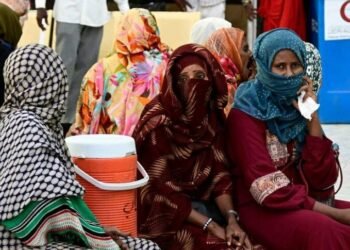Member of Parliament (MP) for Bunkpurugu, Hon. Abed-Nego Lamangin Bandim, has warned that the spillage of the Bagre Dam in Burkina Faso will intensify food insecurity in northern Ghana.
His caution came after SONABEL, managers of the Bagre Dam, confirmed that the annual exercise, scheduled for Wednesday, August 27, began earlier on Monday, August 25, 2025.
According to SONABEL, the Bagre Dam stood at an elevation of 234.27 meters, representing 90.24 percent of its full capacity, just 0.73 meters below its maximum retention level.
The Kompienga Dam had also reached 177.90 meters, with a filling rate of 79.36 percent, standing only 2.10 meters below its retention point. With both dams approaching critical levels, authorities urged communities at risk to relocate to safety.
Hon. Bandim expressed grave worry that the spillage, would devastate food production in northern Ghana. He said although officials are prioritising the protection of lives, farmlands and livestock face inevitable destruction.

“There is an effective collaboration between the five northern region ministers and their NADMO coordinators who are already going from one community to the other educating people to evacuate and then also take along their livestock and whatever they can take”
Hon. Abed-Nego Lamangin Bandim, MP for Bunkpurugu
The MP lamented that beyond these precautionary steps, little more could be done to protect livelihoods. “Now we are fighting to prevent people from losing their lives,” he explained, “but then their livelihoods; livestock, crops and houses will definitely be submerged.”
He recalled how inconsistent rainfall patterns had already disrupted agriculture this year. He explained that crops aren’t doing well because of the erratic nature of rains. “They didn’t start early,” Hon. Bandim added.
Long-Term Solution
Beyond immediate evacuation measures, Hon. Bandim disclosed that the government is preparing a long-term intervention to tackle the recurring Bagre Dam flooding.

He revealed that discussions had begun suggesting the government’s intention to pursue a project that’ll turn the roads on the dam spillage, particularly on constructing dams and reservoirs to utilise the annual excesses of the dam.
“About two weeks ago, the Majority Leader, Hon. Mahama Ayariga, met with the leadership of the northern caucus, of which I am one, together with the five Regional Ministers.
“It came out that the government is preparing a long-lasting solution where they would build dams or reservoirs to be able to harvest water that is spilt”
Hon. Abed-Nego Lamangin Bandim, MP for Bunkpurugu
He argued that if harvested, the water could be used to support agriculture. “We can also direct it into the Akosombo Dam. That is a long-term solution,” he said, hinting at energy generation capabilities of the proposed solution.
The MP’s comments highlight the urgent need for comprehensive measures to protect food systems in the northern regions. Northern Ghana depends heavily on agriculture, and flooding has repeatedly threatened both food security and livelihoods.

The call for water-harvesting aligns with earlier proposals that excess water from the Bagre Dam could be turned into a productive resource rather than a destructive force. If realised, such infrastructure would not only safeguard communities but also create opportunities for irrigation-driven farming and energy support.
President John Dramani Mahama’s government now faces renewed pressure to accelerate solutions as thousands of residents prepare for displacement and possible crop loss. With the spillage beginning earlier than expected, the risks to communities and farms are even higher this year.
As evacuation efforts continue, NADMO officials and regional leaders are racing to limit casualties.
Yet for many farmers in northern Ghana, the larger fear is not only the water rushing through their fields but also the uncertainty of what will be left behind when it recedes.


















